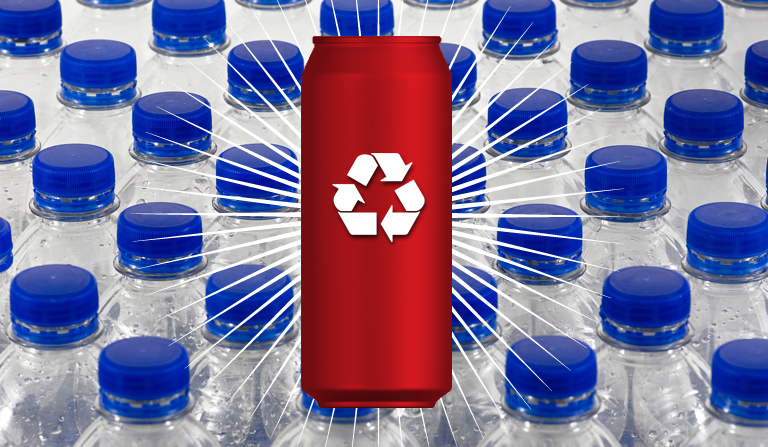-
24
Aug
A group of Japanese Beverage Makers Comes Up With a Simple Solution to Deal With Marine Pollution

We’re all familiar with the growing problem of plastic bottles polluting our oceans. Only 9% of plastic is recycled world wide. 73% of beach litter is plastic. One million plastic bottle are bought every minute. So it begs the questions… where does all this plastic end up and how can we deal with as it continues to get out of hand?
Over the years the plastic bottle has eclipsed the glass bottle as a cheaper option. Glass bottles are sadly not practical for all applications. However a group of Japanese beverage makers are letting go of plastic bottles and are converting to aluminum cans for their teas and soft drinks.
The rate for recycling aluminum cans is 71%. This far exceeds the 24.3% for plastic bottles. Another bonus is that the beverages last far longer in the aluminum cans, meaning less waste and spoilage.
And the trend started by these Japanese companies is catching on. Unilever Plc, one of the worlds largest producers of consumer goods is even said they will start selling shampoo is aluminum bottles in the United States later this year.
Another benefit is that consumers will take notice. Plastic bottles are increasingly seen as a problem and turn off consumers. When they’re deciding what to buy, the aluminum can will stand out. While plastics are recyclable, consumers are often unsure of which or what plastics to recycle. Everyone knows that aluminum cans are recyclable and many food courts and halls have receptacles just for aluminum cans.
This is a good example of how some environmental solutions can be incredibly simple. Have you looked at your industry for a similar move?
Sources:
https://www.globalcitizen.org/
en/content/effects-of-plastic- pollution-facts-you-should- know/




